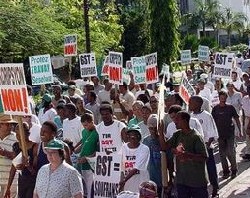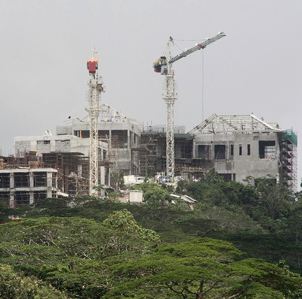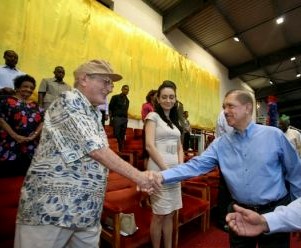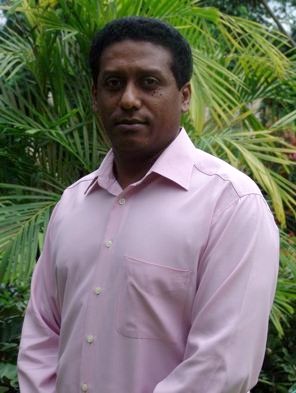|
Seychelles Society | Economy - Development Seychelles' silent 2nd revolution
While Seychelles had seen continuous economic progress since independence in 1976, much thanks to the rapid growth of a luxury tourism industry, the problems surfacing in the 2008 crisis were deeply rooted in the country's post-independence history. Coupist President France Albert René in 1979 made Seychelles a socialist one-party state. State intervened in all sectors, both securing a quick development of infrastructure and risking stability by large budget deficits. Control over the Seychellois rupee became a key priority to control economic development. The strongly overpriced currency contributed to make price levels on Seychelles among the world's highest, which again meant that the increasingly popular tourist destination only could target the highest classes. Seychelles gained a reputation of "a five-star destination with three-star hotels" as infrastructure building kept lagging behind. President René's luxury-socialist model would work as long as the tourism industry kept expanding. Tourists kept subsidising state coffers by buying the overpriced rupee. But the model was doomed for collapse should tourists betray the archipelago. A pre-taste of the 2008 crisis was noticed in 1991–1992, as the Gulf War cooled down global tourism and Seychelles saw a sharp drop in arrivals. The economic model was threatened by collapse. It is probably not a coincidence that President René backed down on his one-party rule during this economic crisis and agreed to introduce a multi-party democracy in 1992. President René, still leading the country in an authoritarian style, further agreed to a larger participation of the private sector but kept the rupee's value under state control. With tourists returning, the careful economic liberalisation seemed to lead to an economic recovery. The ruling party's economic model had survived with a few adjustments. But budget deficits continued to build up the foreign debts of Seychelles. And with the world travel market again becoming unstable after 9/11 and the "War against terror", it soon became clear that the Seychellois economy
President René, by now 69 years old, in 2004 decided to throw in the towel. Analysts hold Mr René, seeing the economy was in free fall, wanted to step down in a bid to save his legacy as the economic developer of the nation. Indeed, during President René's controversial rule, Seychelles had become the most developed country in Africa in terms of GDP per capita and a long list of social indicators. Vice-President James Michel in 2004 was handed over the Seychelles presidency, given the difficult task to save the crumbling economy. More open to free market policies and the private sector, President Michel slowly opened up the Seychellois economy to private capital. His modest reforms seemed to pay off. Again, Seychelles was helped by a rebound in the tourism industry, and in 2005, 2006 and 2007, the country experienced a new boom. GDP growth rates were between 7 and 8 percent annually, and President Michel seemed to have succeeded with his light reforms. But also President Michel kept spending more than government earned, further increasing foreign debt. Socialist ground structures in the economy were maintained, with heavy state regulations, despite an opening towards private capital. Also the rupee was kept overpriced. With the world economy moving towards crisis, Seychelles was among the first nations to be hard hit in 2008. Growth plummeted and government was unable to handle down-payments of its - by now unsustainable - foreign debt. According to the International Monetary Fund (IMF), Seychelles in 2008 experienced "two crisis" - a home-grown debt crisis and effects of the global financial crisis, the latter also leading to a drop in tourist arrivals. According to an IMF analysis, the home-grown crisis was a result of "a combination of overly expansionary fiscal and monetary policies, a pegged exchange regime, and a complex system of exchange controls, state subsidies and financial sector restrictions." This, the IMF analysis concludes, "culminated in a severe balance of payments and public debt crisis in the second half of 2008." For the first time, Seychelles had to turn to the IMF, World Bank and international creditors. In a humiliating move, government had to renegotiate its foreign debts and ask for assistance from the IMF. The Fund
Now, government was forced to engage in deep-rooted reform, re-inventing its economic model. Bold steps needed to be made, away from the ruling party's 40-year-old leading principles. The reform programme included a decision to float the exchange rate of the rupee - the most critical move in the country's policies to address the crises. It would be a wide-ranging economic and social experiment that could end in success or disaster as a collapse of the small currency in an aggressive world market could not be ruled out. Vice President and Finance Minister Danny Faure recalls that when government decided to embark on the reform programme in October 2008, the move to float the exchange rate was the most critical decision Seychelles had to take. Seychellois parliamentarians nervously voted in favour of government's reform programme and "amended the country's Central Bank Act accordingly," Minister Faure recalls. Speaker of the National Assembly, Patrick Herminie, remembers that politicians were moved to completely change their mindset of the authorities from being "proponents of welfarism" to being "fervent promoters of entrepreneurship." Tough negotiation with the IMF had brought about "the boldest reform programme ever" undertaken in the country, Mr Herminie adds. The reforms worked better and faster than anybody expected and the IMF's mission chief for Seychelles Jean Le Dem is full of praise over the turn-around. Surprisingly, the Seychelles economy had proved "resilient to the global economic crisis of 2009 and has rapidly recovered in 2010 on the back of a rebound in tourism, sizeable foreign direct investment, and a widespread pickup in the domestic economy," according to Mr Le Dem. Even Alain St Ange, former treasurer of the opposition Seychelles National Party (SNP), agrees that government has done a good job reforming the economy. "Government must be given credit for the effective reforms that created new growth in Seychelles," Mr St Ange told afrol News. The SNP, which is represented in parliament, has widely accepted the economic reforms driven through by Finan
But the the SNP, which has achieved over 40 percent of the popular vote in all elections since 2001, mostly stood behind reform programmes in the Seychelles parliament in a "national unity" drive during the crisis. It still wants to go further than government, including a "de-politisation" of public service and local administration, which the opposition party claims is still organised according to the 1979 one-party state model. Meanwhile, the Seychelles economy remains too dependent on the tourism sector as a possible new downturn in the international travel market would most certainly hit the national economy. President Michel consequently took over the portfolio as Tourism Minister in June 2010, announcing a "streamlining and restructuring" of the Seychelles Tourism Board. As Seychelles will remain dependent on tourism for its economic development, a policy of diversifying the key sector is to make the country less vulnerable to external shocks. Among the key reforms of the tourism sector, are an increased private-public sector partnership in the further development of the industry and a search for new markets. Seychelles thus launched the "Affordable Seychelles" campaign - strongly supported by the floating rupee - that is targeting the European middle class in a drive to rid the country off its image as an "upper-class only" destination. Also, dependence on the French market - over 20 percent of tourists in Seychelles are French - is to be broken. In 2010-11, Seychelles is reopening its tourism offices in the UK and Spain, which had been closed as pessimism reigned the archipelago. Mr Le Dem of the IMF holds that Seychelles, "as a small island state," still remains strongly vulnerable to external shocks, urging the nation to further diversify its economy and improving the nation's still over-regulated business climate. He however agrees that Seychelles has laid the foundations for future growth and economic stability by the "bold reforms" initiated in 2008. With these reforms, much of the root causes for the returning crises, effective since the 1979 "revolution", have been removed. Optimism certainly has returned to the archipelago after its second "revolution" of 2008. By staff writers © afrol News
Current afrol News Top Stories
|
front page
| news
| countries
| archive
| currencies
| news alerts login
| about afrol News
| contact
| advertise
| español
©
afrol News.
Reproducing or buying afrol News' articles.
You can contact us at mail@afrol.com











